From the Archive: "You Make Me Feel (Mighty Real)" - Sylvester
On Authenticity as a Superpower
This is Songs That Saved Your Life, where we explore the queer roots of rock & roll. Our work is made possible through the support of paid supporters. If you appreciate thought-provoking journalism that reveals the untold stories of your favorite songs, please consider supporting this project with a paid subscription. Here’s a discount so you can support us for less than 80 cents a week!
Good morning!
Today, I’m celebrating what should be a national holiday. At the very least, it should be a holi-GAY since queer people owe so much to this underrated superhero. Today would’ve been the 77th birthday of disco legend, Sylvester, who died in 1988 at the age of 41.
To say that I’m a Sylvester evangelist is an understatement. His story is so vitally important to LGBTQIA+ liberation and yet so woefully under studied, even within our own community.
I was recently gifted the honor of a lifetime of being a script consultant for a Sylvester themed episode of a PBS series called Sound Field. I encourage you to take 11 minutes out of your day to watch this episode.
Sylvester was one of the very first artists I wrote about when I decided to start this publication. Since there have been so many new subscribers since then, I’m honoring his legacy by sharing his story here again. I hope you enjoy!
At a time when other queer stars were still playing it straight, Sylvester dared to be an unapologetically out, genderfluid, Black pop star.
Long before pride festivals were considered safe, throngs of queer San Franciscans turned out for the “Gay Day” parade. As they do today, floats carried partiers and dancers in knee-high boots. It’s 1975 and Sylvester is perched atop a convertible, with two nearly naked men riding on the hood like pets. Two more men walk alongside the car and usher Sylvester’s outstretched arms, like a showgirl descending a staircase instead of a parade route. Sylvester isn’t a showgirl, though, he’s the show.
When you think of early queer musical superheroes, some names come to mind — Elton John, David Bowie, Freddie Mercury. Documentaries and rock biopics are dedicated to their triumphs. But if we’re getting costumed for Queercon, the big red “S” that we paint on our chests should stand for Sylvester.
Most everyone was closeted, or mostly closeted back then. Bowie came out as gay in 1972 and then declared he was bisexual in 1976. Elton John also came out as bisexual in 1976. But Sylvester pushed beyond the boundaries of any star that preceded him. He broke through the mainstream without wielding sexuality for shock value or slipping into a more conventional persona whenever it suited. He sang about having sex with men — not because it wowed the audience — because he wrote about his everyday life. Sylvester was out and never pretended to be anything else; although, his record company pressured him constantly.
In 1978, perhaps perfectly protected by disco’s excessive and flamboyant culture, Sylvester rose to the vanguard of American culture and became known as the “Queen of Disco.” His breakout hit, “You Make Me Feel (Mighty Real)” is, on the surface, just a really great dance song. But the anthem and its singer are a siren call for queer pride in a time when visibility did not exist. His feminine-presenting falsetto rivaled the pitch of disco contemporaries like Donna Summer. In the “Mighty Real “ music video, Sylvester wears a black mini skirt over leather pants, then costume changes into a white suit and dinner jacket, then a sequined lamé camisole holding a fan, as if to say, I am all of these things at once and you can be, too.
“You Make Me Feel (Mighty Real)” went straight to No. 1 on the Billboard Dance chart in 1978. That meteoric rise became singular proof that disco was born from and belonged to gay dance club culture. The song, along with beats from campy contemporaries like The Village People, emboldened disco music as it infiltrated straight, white, suburbia. He was invited to tour alongside giant musical acts of the ‘70s including The Commodores and Chaka Khan. Fans mobbed Sylvester after performances on the Merv Griffin Show and American Bandstand. For a brief, glorious moment, we’d glimpsed mainstream acceptance of a queer, Black icon.
Rather than play butch for the masses, Sylvester dug deep into his authenticity. He kept performing all over San Francisco's gay clubs. He even performed at Harvey Milk’s birthday party in 1978. Having been a fixture of the Castro District, Sylvester was friends with the newly elected local politician. It was one month after the release of “You Make Me Feel (Mighty Real)” when Milk was assassinated. Almost immediately, the song galvanized gay San Franciscans under attack. “You make me feel mighty real” might’ve felt suddenly like it should be screamed from rooftops.
None of this is to say everyone welcomed such openness. His label, Fantasy Records, wanted to protect his newfound fame by “toning down” Sylvester’s image.
Fantasy told him in 1979 that they wanted him more like Teddy Pendergrass — the smooth soul singer described as the “godfather of sex.” (Rather, the “godfather of straight sex.”) Begrudgingly, Sylvester shot one video in a suit.
“You can try and change my image, but I ain’t changin’ shit! So I went to the office in a negligee and a blond wig and ran up and down the halls. Then I terrorized their studio until they had to give up.” - Village Voice
In 1979, Sylvester premiered his album, “Stars,” at the San Francisco Opera House. During the performance, he was presented with the key to the city by Mayor Dianne Feinstein, who also declared May 11th as “Sylvester Day.” A month later, Sylvester again headlined the city’s Gay Freedom Day Parade. And the London Gay Pride Festival.
By late summer of 1979, the allure of disco was beginning to fade, or rather, it was under attack by the straight, white establishment. Disco had infiltrated every suburban television and radio station and that pissed off a lot of racist, homophobic, self-proclaimed “rock and roll enthusiasts.” One particularly disgruntled radio DJ, who had lost his job because the radio station switched its format from rock to disco, led the charge that became known as the “Disco Sucks” movement. When Steve Dahl was ousted from Chicago station WDAI, he found an audience for his anti-disco rants at a rival station. The popularity of his tirades grew so much that Dahl formed a club called the “Insane Coho Lips,” who were "dedicated to the eradication of the dreaded musical disease known as DISCO." His pop up events often became violent. The culmination happened during a 1979 Chicago White Sox baseball game when Dahl hosted a “Disco Demolition Night.” Attendees were told to bring their disco records so Dahl could blow them up using explosives in the middle of the field before the game. The event escalated into a riot as fans burned records in their seats and demolished the batting cages of Comisky Park. Baseball players had to be whisked into their locker rooms until police could shut it down. Although Dahl denied his events were racist and homophobic, Rolling Stone journalist Dave Marsh wrote in his 1979 year-end review, “White males, eighteen to thirty-four, are the most likely to see disco as the product of homosexuals, blacks and latins, and therefore they’re most likely to respond to appeals to wipe out such threats to their security. It goes almost without saying that such appeals are racist and sexist.”
The anti-disco backlash that culminated with the “Disco Demolition Night” event was a death knell to most disco musicians, and they were left scrambling to reinvent their sound. Fantasy Records tried desperately to re-package and ship a new version of Sylvester. After releasing two unsuccessful soul-inspired albums, Sylvester ended his tumultuous relationship with Fantasy.
In 1982, he signed with brand new San Francisco-based label — Megatone Records — that was co-owned by his friend and co-producer of “You Make Me Feel (Mighty Real)” Patrick Cowley. It was a risk to leave an established label for a tiny record company, especially one that focused on producing gay dance music. Megatone’s first hit single featuring Sylvester? “MENERGY”
The boys in the back room laughin’ it up
Shootin’ off energy
The guys in the street talk, checkin’ you out
Talkin’ bout menergy.
It was here that Sylvester found complete artistic freedom. His superpower of staying true to his gay roots continued to pay off, and he once again found his way to the top of the Billboard Dance chart with the single, “Do Ya Wanna Funk,” which was featured in the 1983 Eddie Murphy comedy, “Trading Places.” When Cowley fell ill with the recently discovered AIDS virus, Sylvester became a partner at Megatone Records. He also became a fierce AIDS activist, performing at hospitals and various benefit concerts.
By 1986, the AIDS crisis had taken the lives of thousands of people and its grip had found its way to Sylvester’s personal life. His partner, Rick Cranmer, became ill, and even though he refused to get tested to confirm, it was all but certain that Sylvester was also infected.
By this time, he had charted his third No. 1 dance hit, “Someone Like You” (with an album cover designed by prominent gay artist, Keith Haring). And he was invited to perform on the New Year’s Eve episode of The Late Show with Joan Rivers. “I’m not a drag queen. I’m Sylvester,” he corrected Rivers. During the interview, Sylvester revealed that he married Cranmer, and that Cranmer’s family was unaware of their relationship until that televised moment. It was the first time same-sex marriage was talked about by a celebrity on a national television stage, and it was a Marvel-universe-level moment in queer history.
“He crossed over. He was a genderfluid Black man in mainstream music. My life has changed for the better as a Black, queer man. Any glimmer of seeing one’s self reflected back at them through our culture changes lives.” -
- Billy Porter in the docu-short, Love Me Like You Should: The Brave and Bold Sylvester.
But sadly, so many people have forgotten about Sylvester or the legacy of authenticity he leaves behind. Perhaps it was because he also succumbed to AIDS in 1988, like so many of our queer heroes and the culture they pioneered for future generations. As a final act, Sylvester’s last public appearance was at the beloved pride parade that he’d starred in for so many years. He did the route in a wheelchair.
No one knew he was sick until then. “He was so synonymous with Gay Day, I was shocked,” remembered famed director John Waters in the docu-short, “Sylvester: Mighty Real.”
So little has been written about Sylvester that many in the LGBTQIA+ community don’t yet know his name. There is one biography written. There was an Off Broadway show in 2014. There are so many stories being told of queer musicians that chased fame from the closet at the detriment of their mental and emotional health. Biopics depicting their pain are big business. (A George Michael biopic is due for release in 2024.) But where is our feature length film honoring the bravery of someone who risked fame and personal safety for the right to be himself?
Even in death, Sylvester is still saving queer lives. In his will, he named two HIV/AIDS charities (Project Open Hand and the AIDS Emergency Fund) as the beneficiaries of all royalties from the future sales of his music. Sylvester’s contributions to queer culture and activism are monumental. The least we can do is remember.
“If he can do it, you can do it,” remembered RuPaul.
Did you catch last week’s issue?



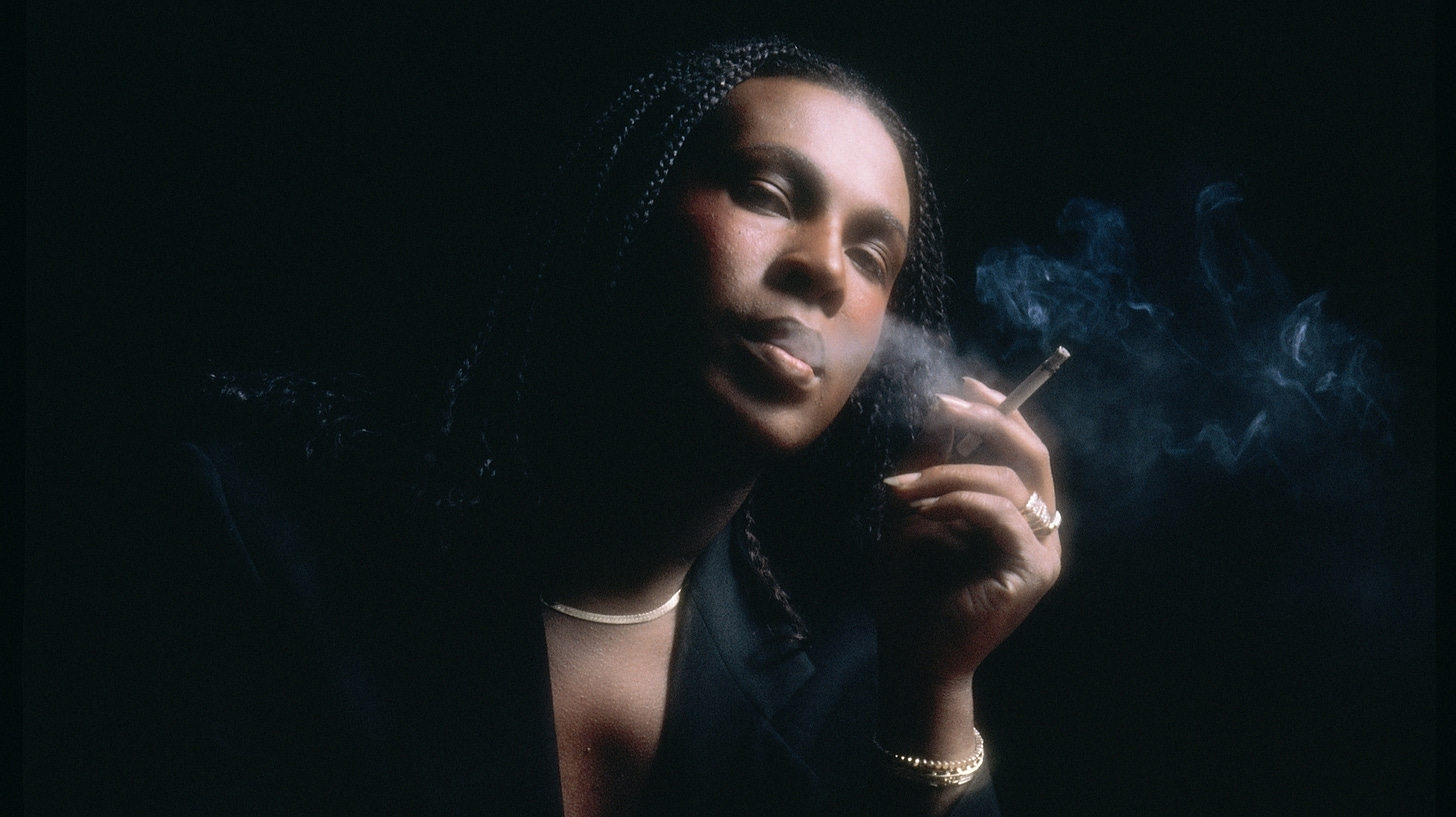

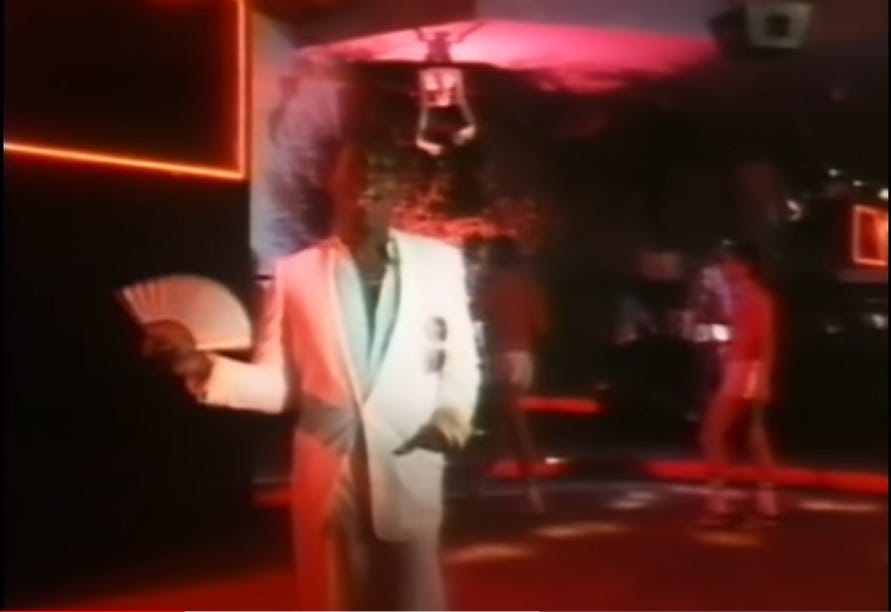
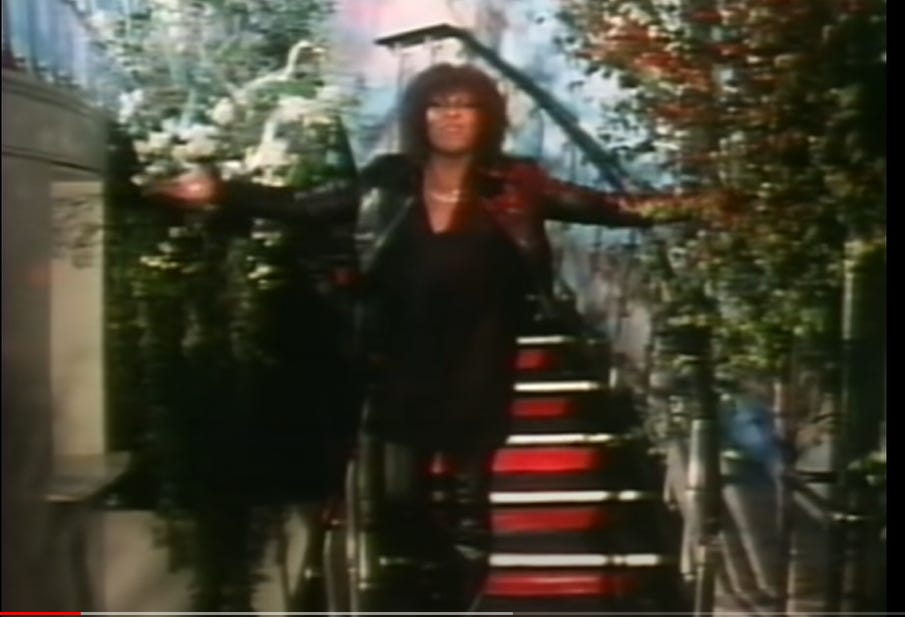
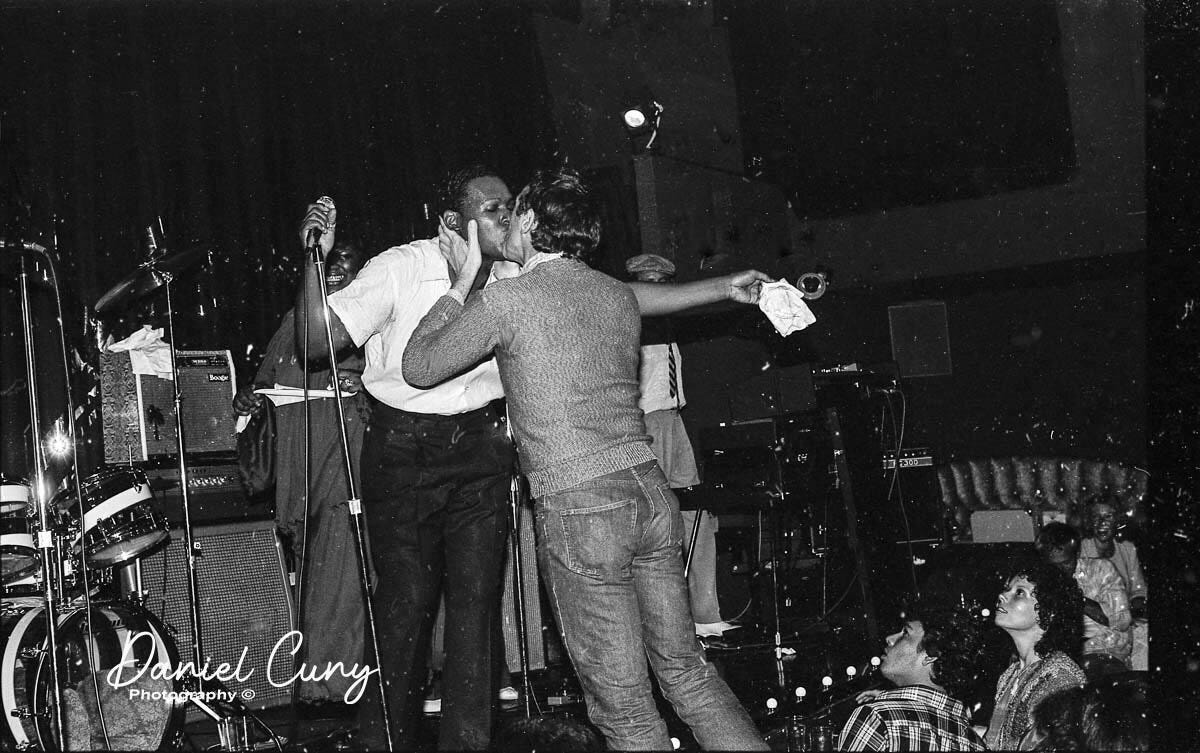
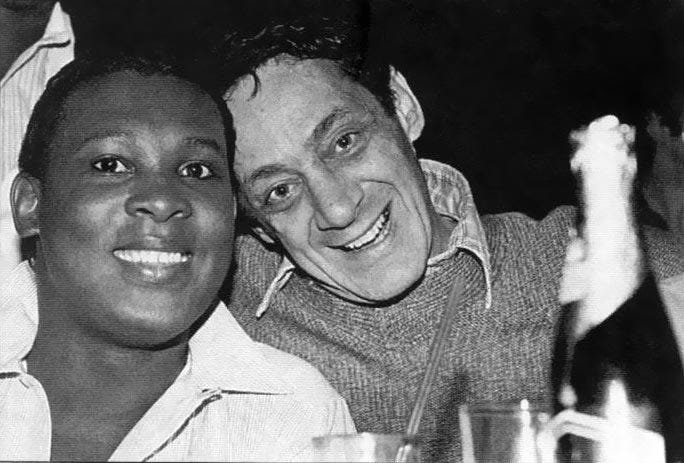


Another amazing write-up. I feel like the backlash to disco is not appreciated today for what it was - racist and homophobic - and instead it is viewed as being a reaction against a form of music they didn't like, without examining the reasons why. So much queer history from this time period seems to have slipped through the cracks and I applaud you for keeping Sylvester's memory alive.
I admit I had never heard of Sylvester and really appreciated learning more. You are great at helping us UNforget the past. Thanks!